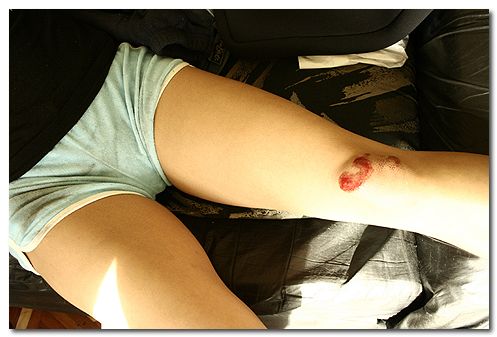Paris Biennial,
Oct 01, 2006 - Mar 01, 2007
Paris, France
Paris Biennale
by Manuel Cirauqui
"The film industry will go into crisis when it ceases to produce fictitious days and aspires to credibility," as Paul Virilio stated in The Aesthetics of Disappearance. Closing Time’s conclusion is that not even the real aspires to credibility. The logic of the documentary, taken to the extreme, reveals nothing but a fictional device, i.e., a mechanism for narrative abduction. The document’s relationship to the real is constructed; its consistency is a question of montage. Closing Time thus plays with covering up its tracks by transferring them to the parallel world of film. Anyone wanting to undertake an investigation of Closing Time will find nothing but vestiges, an incomplete web page (Quito) and photographic traces of two other web pages that have disappeared, a few abstracts of lectures, some recordings and a legend (collective memoirs in the form of a story) told by its participants.
Documentary fiction: abandoning any pretense of correspondence with the real through montage, abandoning oneself to the principle of pleasure to the detriment of the principle of reality: whether or not there is a story, what is fictional is, above all, an atmosphere. The choice of the format of film to transform Closing Time into a finished, narrated work has to do with the consistency of the genre. Cinema is perhaps the last of the arts to still have a valid standard, a classic format that is not merely a museum relic. After the tedium of deconstruction and the conclusion that there is no origin, comes the refounding of genres, the vindication of a postmodern classicism that is nevertheless obliged to be conservative, the model for which could sometimes be David Lynch’s work.
To anticipate oneself (so that the eye carries out the illusion of watching itself seeing) it is necessary to split oneself, make fiction of oneself. Projection in a speculative space-time makes the most sense when what is being projected is no longer a character in a story, but "oneself." Biographical information (in this case the biography of a project) is thus disarticulated and becomes ghost-like, a semi-material entity in keeping with the aforementioned principle of the lightness of the imaginary vis-á-vis the heaviness of reality. If we are talking about fictionalizing ideas, reconstructing a thought, the experience of the latter will take on a new consistency in the measure that the concepts (which Gilles Deleuze viewed as characters) are subjected to a new staging. If we admit that it is the context that gives rise to a singular form of thinking genetically associated to it, we will then understand the deepest meaning of fictionalizing: producing new imaginary contexts implies opening up to the possibility of an unknown, unpredictable way of thinking.
-Manuel Cirauqui (b. Zaragoza, Spain) lives in Paris. Mr. Cirauqui is an art critic who has taken part in various collaborative projects where artists share his production theories in the form of video-performances.
Links:
Closing Time Quito
Closing Time Paris
Closing Time Bilbao
|











